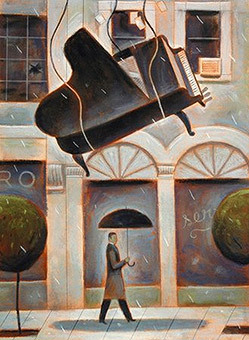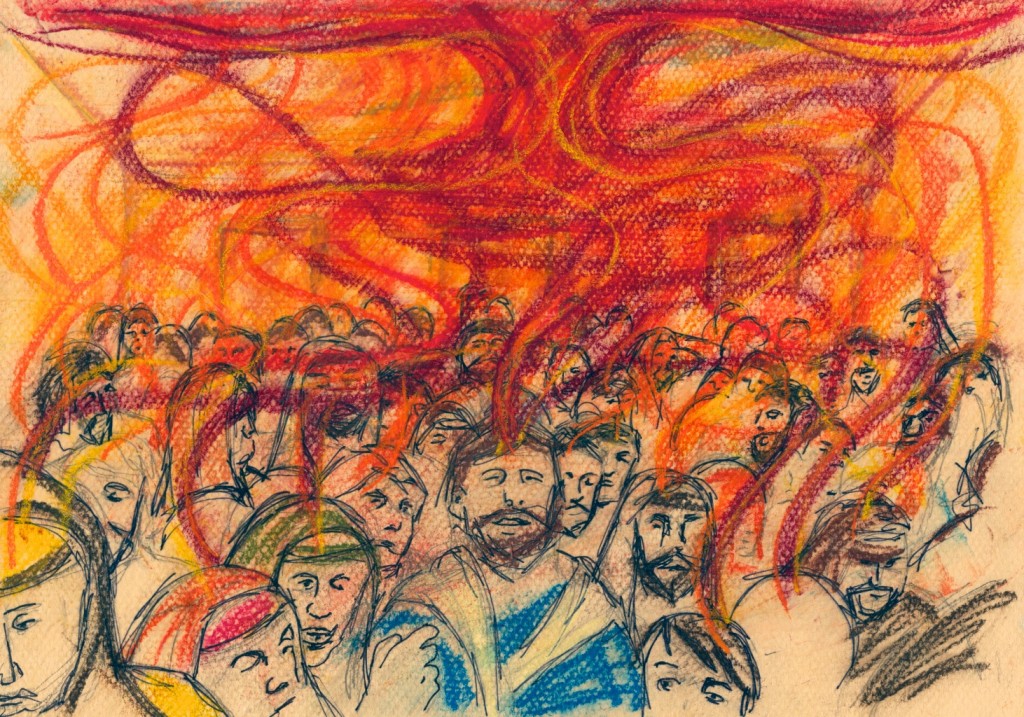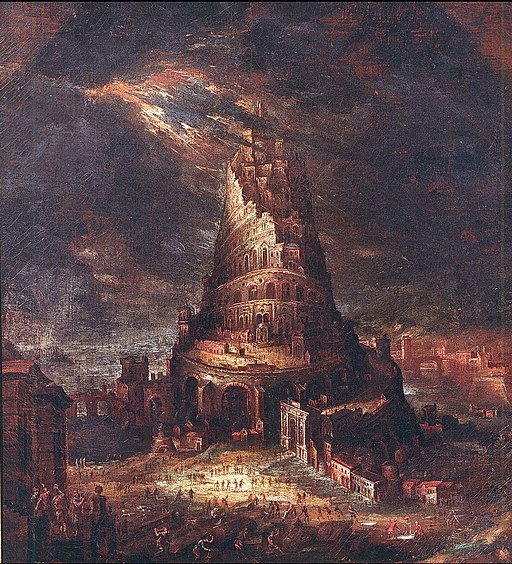Babel and Pentecost help us understand our desire for significance.
We all seek significance. We all long to find meaning in our lives, in what we do, in who we are. We all want to make our mark on the world, even if in a tiny way that maybe only we know about.
Some of us do this in the things we make, in what we build in the world: houses, buildings, bridges, hospitals or companies. Some of us do through the relationships we have: our families, our friends, the people we serve. Some of us do this in the discoveries we make or the things we teach or the movements we start.
Often we aren’t always in touch with our search for significance. But it is always there, lurking underneath, coming to the surface when we feel a major disappointment in life, through that surge of anger or regret, or when a job ends or a significant relationship shifts.
 A Falling Piano
A Falling Piano
I have a confession. I have a fear of falling pianos. I know it’s irrational. It’s actually symbolic—but still real to me.
I have a fear of a piano falling and landing on me. It would happen as I walk around downtown Chicago, slipping out of its restraints while being hoisted up the side of some high-rise. The image I have is like a cartoon, like Wile E. Coyote amid his misadventures chasing the Road Runner, crushed by a falling piano.
My fear is that I would have a meaningless death. That I would die before I make my mark on the world. I worry that a ridiculous death would steal away my chance at a heroic death, a death that really meant something.
Making a Name for Ourselves
My particular fear might sound ridiculous.
But we all seek to make a name for ourselves in some way. For some it is on the world stage—to be famous for something, to really impact the world. For others it is just to prove to your parents that you’re not a worthless screw up.
But either way we seek to be seen, to be known, to be appreciated. And that’s not necessarily bad. But it’s how we pursue these things that make a big difference.
And it is here that we see the relationship between Babel & Pentecost.
Babel: Going up to the heavens
The builders of the Tower of Babel said, “Let us build ourselves a city, with a tower that reaching to the heavens, so that we may make a name for ourselves” (Gen. 11:4).
Building a tower up to the heavens, going up to the place where God dwells, these people wanted to secure a name for themselves. And this really means they wanted to make sure they weren’t insignificant. They wanted to always be remember, to be honored, to be respected and appreciated for their accomplishment.
The builders of Babel were gathered in fear, a common fear of insignificance.
And God saw them, saw their fears and the destructive distortions that it leads to, saw the heart ache and sorrow that flows from a life of fear, and confuses their common language (Gen. 11: 5-7).
God scattered those gathered in fear.
 Pentecost: Coming down from heaven
Pentecost: Coming down from heaven
But in Pentecost something new happens. The curse of Babel is not reversed—at least not if we are thinking about the common language that was lost. But the scattering is overcome.
In Pentecost, God comes down to us from heaven. But not to scatter a fearful people, but to gather up everyone in faith.
God comes down in the power of the Spirit. And the power of the Spirit filled the disciples so that they “began to speak in other tongues as the Spirit enabled them” so that all who came to look on “heard their own language being spoken” (Acts 2: 4-6).
And why did the Spirit fall in power (and why does the Spirit still fall in power)? So that all would know that “everyone who calls on the name of the Lord will be saved” (Acts 2:21).
The builders of Babel—and all of us since—longed to make a name for themselves by climbing up into heaven. But now, God has come down to us from heaven and given us the name that saves—the name of Jesus (Acts 2:38). And in Jesus all are taken up into heaven—even as heaven comes down to earth.
While God scattered those who gathered in fear, God gives the best name to those who gather in faith.
Fear or Faith?
Babel and Pentecost are not primarily about one language or many languages, or how we communicate.
Babel and Pentecost are all about why we gather together. They are all about how we seek significance. They are the ways of fear and faith.
The Spirit of God leads us to the name of Jesus, the greatest and best name, the name of the one who comes down from heaven in order to raise us back up to God.
It is not wrong to seek significance. In fact we are made for it—we are made in the image of God, and that’s pretty significant. We just need to know which name to turn to in order to find this significance.
Are we creating a name in fear or receiving a name in faith?
And the difference between receiving the name of Jesus and trying to create our own name is significant. It is the difference between being scattered by God or gathered by God. It is the difference between the power of the Spirit and no power at all.
If this has been helpful or thought provoking, please share it.

